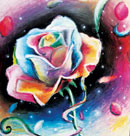All Nonfiction
- Bullying
- Books
- Academic
- Author Interviews
- Celebrity interviews
- College Articles
- College Essays
- Educator of the Year
- Heroes
- Interviews
- Memoir
- Personal Experience
- Sports
- Travel & Culture
All Opinions
- Bullying
- Current Events / Politics
- Discrimination
- Drugs / Alcohol / Smoking
- Entertainment / Celebrities
- Environment
- Love / Relationships
- Movies / Music / TV
- Pop Culture / Trends
- School / College
- Social Issues / Civics
- Spirituality / Religion
- Sports / Hobbies
All Hot Topics
- Bullying
- Community Service
- Environment
- Health
- Letters to the Editor
- Pride & Prejudice
- What Matters
- Back
Summer Guide
- Program Links
- Program Reviews
- Back
College Guide
- College Links
- College Reviews
- College Essays
- College Articles
- Back
Made in Thailand MAG
Every Sunday in Chiang Mai, Thailand, many shopkeepers travel on foot, by car, by auto-rickshaw, and by just about every other means imaginable to set up shop in and around the old city wall and moat.
Predominantly tourist-oriented, the market offers everything from bedspreads to pirated TV shows to offensive T-shirts. The stalls at the beginning of the market, outside the old wall, peddle different kinds of food – strawberry smoothies, dark coffee, guava, watermelon. Each type of merchandise or service can be found in several places throughout the bazaar.
Behind the blackened, battered brick wall, dozens of colorful umbrellas mark each stall lining the street. The sea of humans walking up and down the street stretches farther than the eye can see. Groups of camera-carrying Europeans cluster around people with overturned hats in front of them singing karaoke. A girl in vividly colored garments and jangling jewelry dances to traditional tunes blaring from a crackly amplifier.
Other common merchandise at the bazaar include knock-offs of expensive clothing and personal accessories, various Buddhas and idols, wooden figures and dishes, and long strings of Chinese-style paper lanterns that twinkle at night and swing in the breeze. In the underworld of the East, a place where Nike becomes Mike and Adidas lands another “d” to emerge as Addidas, crooks copy big-name Western brands and sell their own versions at a fraction of the price, sometimes alongside the genuine article. These cheap copycats can be found in street markets all over Asia, including those here in Chiang Mai.
The market’s vendors import cashmere, known in Asia as pashmina, from India, and people of the Northern hill tribes maneuver their pickups and elephants loaded with hardwood into town. Exotic smells, foreign languages and a wide range of skin tones flood the senses from every direction.
In the daytime, the streets are choked with dust, the air is oppressive, and the sun is searing. Even as the sun sets and the lights of the many buildings, restaurants, shops, and street lamps blink on, the temperature still lingers in the 90s.
When the sky darkens, tuk-tuks (covered motorcycles with back seats) and song taus (red pick-up trucks with bench seats) whisk thirsty Aussies, Europeans, and assorted Westerners off to the bars and pubs.
Many tourists who vacation in sunny, tropical locales feel the need to wear flip-flops, straw hats and, well, little else; Chiang Mai’s tourist population is no exception. Even at night, toasted tourists shine in all their sun-dried glory, sometimes appearing to be covered in melted glass. Still, getting one’s hide tanned to such an extent must not feel as bad as it looks, because every season these rich foreigners return for more.
At the end of the day, although commonly flooded with visitors and sightseers from across the globe, Chiang Mai’s market never fails to remind all they are still deep in the heart of Asia.

Similar Articles
JOIN THE DISCUSSION
This article has 4 comments.

27 articles 0 photos 43 comments
Favorite Quote:
"Forgive and Forget".